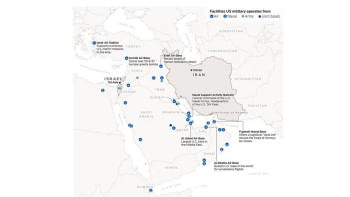When emotions defy market logic
ACCORDING to a report published by SKYTRAX, a UK based consultancy firm, Bangladesh's national carrier Biman Bangladesh Airlines is one of the worst airlines of the world. Biman, alongside 20 other airlines of the world, received a two-star rating by SKYTRAX. The worst airlines are accorded with one-star ratings while the best ones are marked with five-stars. To be completely honest, Biman's low ranking was neither surprising nor was it unexpected.
Successive governments of the country pumped in millions, if not billions of taxpayers' money, to retain Biman as an effective state-run organisation. The outcome is not very encouraging. Last year, Biman made a loss of Tk. 199 crore, it incurred losses of Tk. 46 crore in 2009-10, Tk. 224 crore in 2010-11 and Tk. 594 crore in 2011-12.
Even though it posted a net profit of Tk. 271 cr in the first seven months of the current fiscal period, according to a report, our national carrier has been posting losses every year since its inception, apart from FY 2007-8 and FY 2008-09.
One should also note that apart from its poor performance as a profit-making venture, previously Biman was severely criticised by its customers for not demonstrating professionalism. At some point in history, missed schedule of flights, inefficient ground staff and terrible in-flight services were a norm for the airline. Admittedly, things are much better now.
The company also faced criticism for incorporating outdated old flights in its fleet and it faced a ban from the Federal Aviation Administration of the US for failing to meet 'Category 1 rating', as a result Biman is still not allowed to operate the Dhaka-New York route.
What than is the logic of keeping Biman as a public company and what is the point of pumping in billions of tax payers' money into a venture that is neither bringing pride to the nation nor providing exemplary service to its customers? In an era of liberal market economy, considering Biman's empiric record of poor performances, one would see little point of running it as a state-run venture.
Instead of being run by the state, Biman could have been handed over to a professional private civil aviation management company that would oversee its smooth operation and maintain an international standard. However, one should note that civil aviation is not a normal industry. Here nationalism supersedes market logic even if nationalism in the case of Biman has proven to be costly. Nevertheless, Biman's case is not the most unique in the world.
For example, if one looks at the history of the management of civil aviation industries in Europe, they would find an uncanny similarity between keeping national flag carriers as government run companies despite registering losses.
The political view of ordinary people regarding their national carriers in Europe comes from nationalism. For instance, the people of Belgium, Holland and Switzerland, Britain, France, Germany, have developed a strong degree of familiarity, and even affection, for their flag carrier. European passengers may want their flag carrier to give good service and value for money, but they expect it to continue flying even if it does not stand up to the test of good service. Europe's airlines have become embedded in the tapestry of nation states that make up the continent, and this is one of the reasons why they have survived for so long in such a notoriously unprofitable business. In Europe, there are many cases of airlines such as Air France, Sabena and Iberia Airlines, taking refuge in government subsidies and financial aid packages.
It is ironic because civil aviation is one of the major carriers of globalisation; it helps businesses cross state boundaries while reducing the time for travelling and fostering migration. In other words, civil aviation brings speed and connectivity into human life. Despite today's trend toward global markets, free trade, the internet and the economic integration of entire continents, one of the most globalised, technology-intensive industries remains encumbered by too many rules inspired by nationalist sentiments that stifle competition and prevent airlines, communities, passengers and shippers from benefiting to the fullest. In short, the global civil aviation industry differs from most businesses involving services or commodities by directly engaging the national security interests, the sovereignty, and the nationalist prestige of almost all countries of the world.
The writer is a Research Fellow at the Bangladesh Institute of Social Research Trust (BISRT). He is the author of the book Politics of Global Civil Aviation Industry, available on Amazon. He also authored Transatlantic Open Aviation Area: A Template for a Globalised Civil Aviation Industry? published in the Netherlands based online journal, Aerlines Magazine.
Email: [email protected]

 For all latest news, follow The Daily Star's Google News channel.
For all latest news, follow The Daily Star's Google News channel. 



Comments